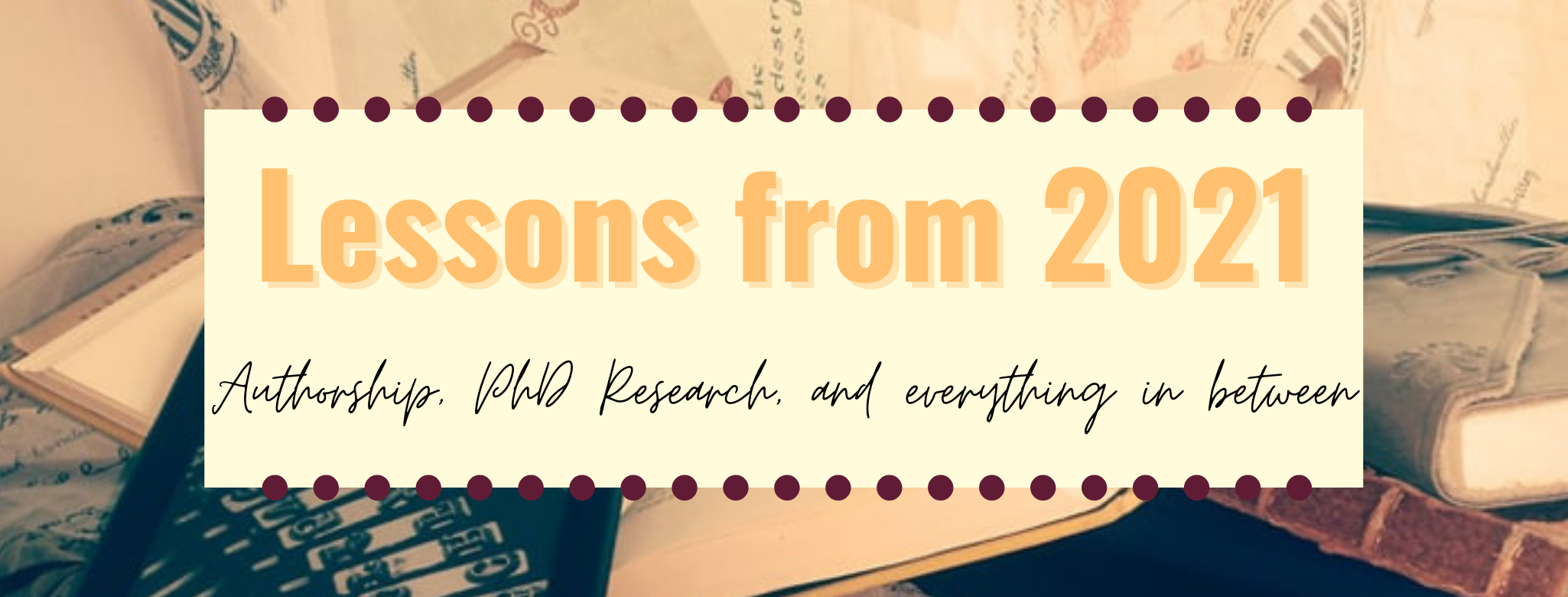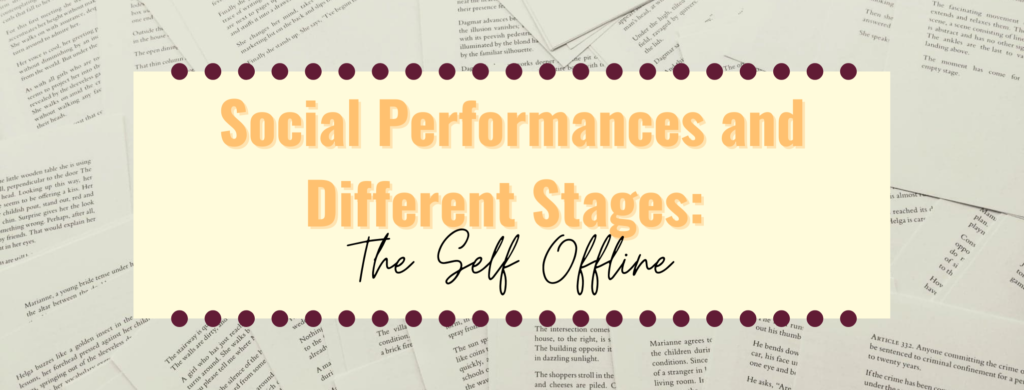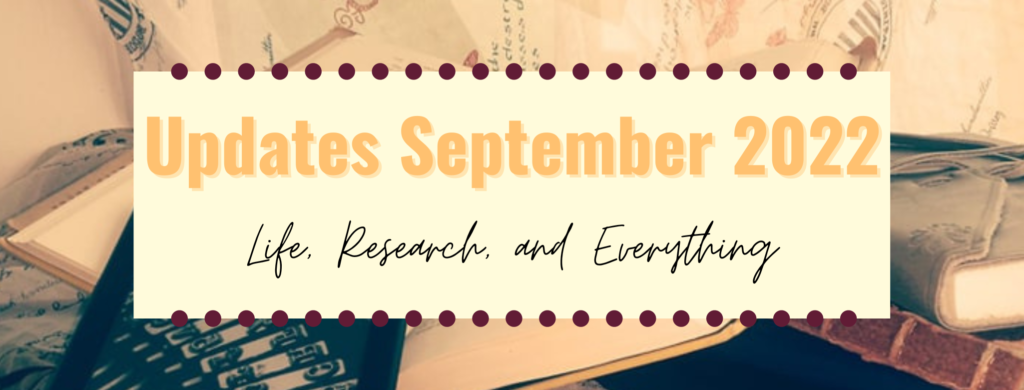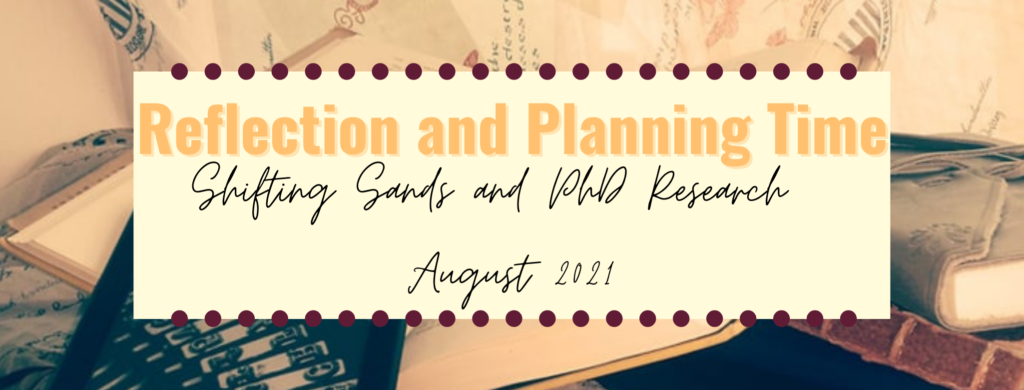I can’t believe it has been a year since I released Shifting Sands into the world! There have been a lot of ups and downs since then, but it’s quite fulfilling to see it still going. The next wave will come on the 17th December 2021 so, if you’re still needing to catch up on this one, you’ll find it here. For this last post before the wave turns over, I figure it’s a good time to reflect and think about the things I’ve learned across this year. This is a post mainly for me, so I’m not going to worry about SEO ro anything like that, but, if you’re interested in self-publishing, authorship, or academic life, maybe it will be of interest to you too. Here we go!
Lessons… About Authorship
- Finishing the book doesn’t mean the story is finished. Planning, writing, editing, publishing… They’re all great steps along the process and each one feels like a brilliant achievement at the time, but there’s so much more that comes after. Creating an “unstable” e-book means the temptation to change things or add detail in each new wave is huge, obviously, and I’m planning sequels, but then there’s social media. One of the quickest ways to engage with other readers and writers online is by asking questions and sharing answers about your writing. Even if the storyworld we’re creating isn’t purposefully transmedia, it’s still something that naturally expands beyond the text in our current book culture environment.
- Who you are affects the story. Bye bye, death of the author theory. While I still believe that the reader brings their own context to their interpretations of the text, the author is just so visible on social media and reading is so rarely a solitary hobby nowadays. And, as Marie-Laure Ryan argues, why should we discard the data generated in this? From a reader perspective, I’m sure we can all think of authors where we would like to discard what we know about them to enjoy the texts alone, but that’s increasingly difficult to do for a few reasons. One, can you really just ignore things you’ve learned? And two, should you ignore them when doing so could mean either misinterpreting a work, or potentially providing monetary support to causes you are against? The audience has power in the industry, but usually this is mainly when it starts affecting the finances. But I think the writer should also be aware of this fact: who you are and the things you post on social media influence reader perceptions of you and their reception of your writing. How do you want them to see you?
- Social authorship is exhausting. The expectation to be available and consistent online takes a lot of effort. I know I’m only seeing the barest snapshot of this — just enough to conduct my research — but I know it must be worse for traditionally published authors with a team behind them telling them what they should do and how they should be. Having authors be present on social media has so many benefits, but I think we’re slowly realising that it’s not the equal playing field it was purported to be. To gain success, you need to be the right kind of author. You need to be the author readers expect but also unique enough that there’s a reason to invest in you. Your work needs to seem original but marketable. And, most of all, you need to post regularly, but they need to be the right kind of posts. I’m honestly not sure if this is sustainable. It’s exhausting to the author, risks mess ups by them, means publishers may prioritise an established following over the strength of a text, and shuts some voices out of the industry because they don’t meet these expectations.
- Social media has transformed the book. Throughout book history, the book has gone through a number of innovations to make it what we know today: accessible, transportable, and permanent. When I first started doing my PhD research, I thought I was messing with that last element by creating an “unstable” e-book. The e-book, which caused such fear in the early days of its adoption as a potential death to the book, has always remained a pale replica that doesn’t exploit its potential as a medium in its own right and I wanted to explore. I’ve learned through this process that, honestly, some of the fears around the book changing have come true, but not because of the e-book or any innovation in this. Instead, our increased connectedness to other readers and the author stretches the book beyond its covers or the limits of an e-pub file, disrupting some of its stability in exchange.
Lessons about… PhD
- Your research will constantly evolve. With my academic work, I’m the kind of person who likes to have a vision of the end results to lead me forward. With a PhD, however, I don’t think that’s possible. It’s too massive and, if your field is still growing and developing research in your area as mine is, it will keep being added to. Once this is all over, I may have to bring together all the outlines I made at different stages to see how my focus changed over time. From my current position, almost perfectly halfway through writing my discussion chapters, there are some new elements coming in that I didn’t see coming and then others that I thought I discarded growing stronger. I’m excited to see where I end up.
- Your life cannot go on pause during PhD. I’m the kind of person that, while I’m in a heavy research phase, everything else kind of goes out the window. I just have to push forward until I reach X goal, after all, so Y problem can wait until then, right? Sometimes that works. This year it feels like I’ve been hit with a series of ‘no, that really doesn’t work!’ moments though. Particularly in the health department — writing up a PhD when your brain has stopped holding onto information is really fun! But, on the plus side, I think my relationship with my PhD is becoming slightly healthier in the aftermath. I’m trying harder to not be all or nothing, and to stop measuring my worth based on my academic ability. I’m so lucky to have the supervisors I do, supporting me on this journey and trying to lessen my anxiety when I do have to step back or slow down with PhD.
Lessons about… Everything else
- Some things should not be left to get better on their own. Laptop making weird noises and running super slow? Yeah, don’t just keep pushing forward hoping that it will just get you to X milestone. Replace it! Or, at the very least, go to see someone who knows about IT stuff to find out how bad it is. Better that than hitting the abrupt death point and crying for two straight weeks. Lung problems and a huge hit to your overall fitness? It could be the aftereffects of Covid and lack of exercise during lockdown, or, you know, it could be something to go see your doctor about. Best to book an appointment just in case! Recurrent tooth issues? I should really see a dentist about that…
- Save! Save copies of everything everywhere. And remember the weird file types! It won’t save your laptop, but it may slightly lessen the hit.
- It’s okay to mess up – sometimes that even makes things better. Shifting Sands didn’t work out the way I had planned and, honestly, I’m still a little devastated about that. But, from a research perspective, it’s really interesting to look at the issues I faced and why they happened. The time eaten up by my getting wiped out by illness felt like a muck up – it really screwed up the timeline I’d given to myself – but it seems to be helping my PhD writing develop. Either that or, you know, I’m doing a really good job at faking my way through this writing up process! We’ll find out when I finish.
Obviously, this list could be twice as long as it currently is – for a year where I didn’t manage to do half of what I planned, I still did a lot in 2021! – but it’s good to see some of it written down. What were your biggest lessons of 2021?




Comments
Comments are closed.